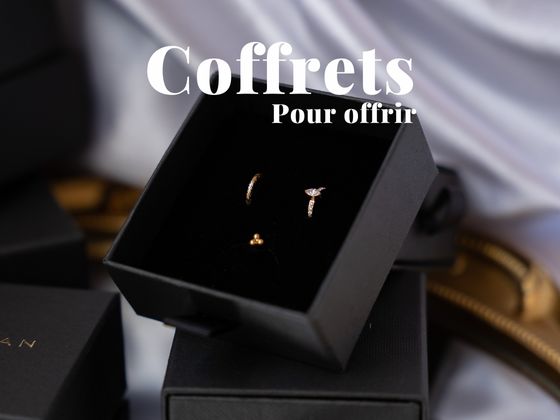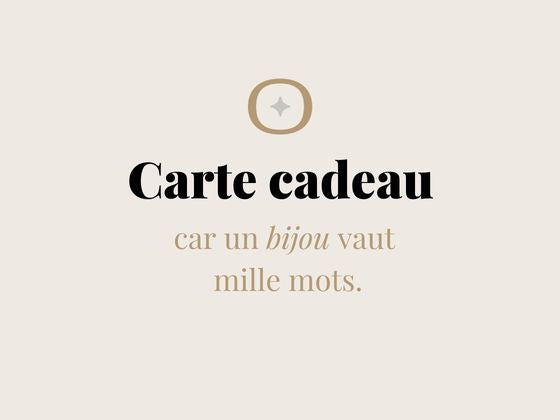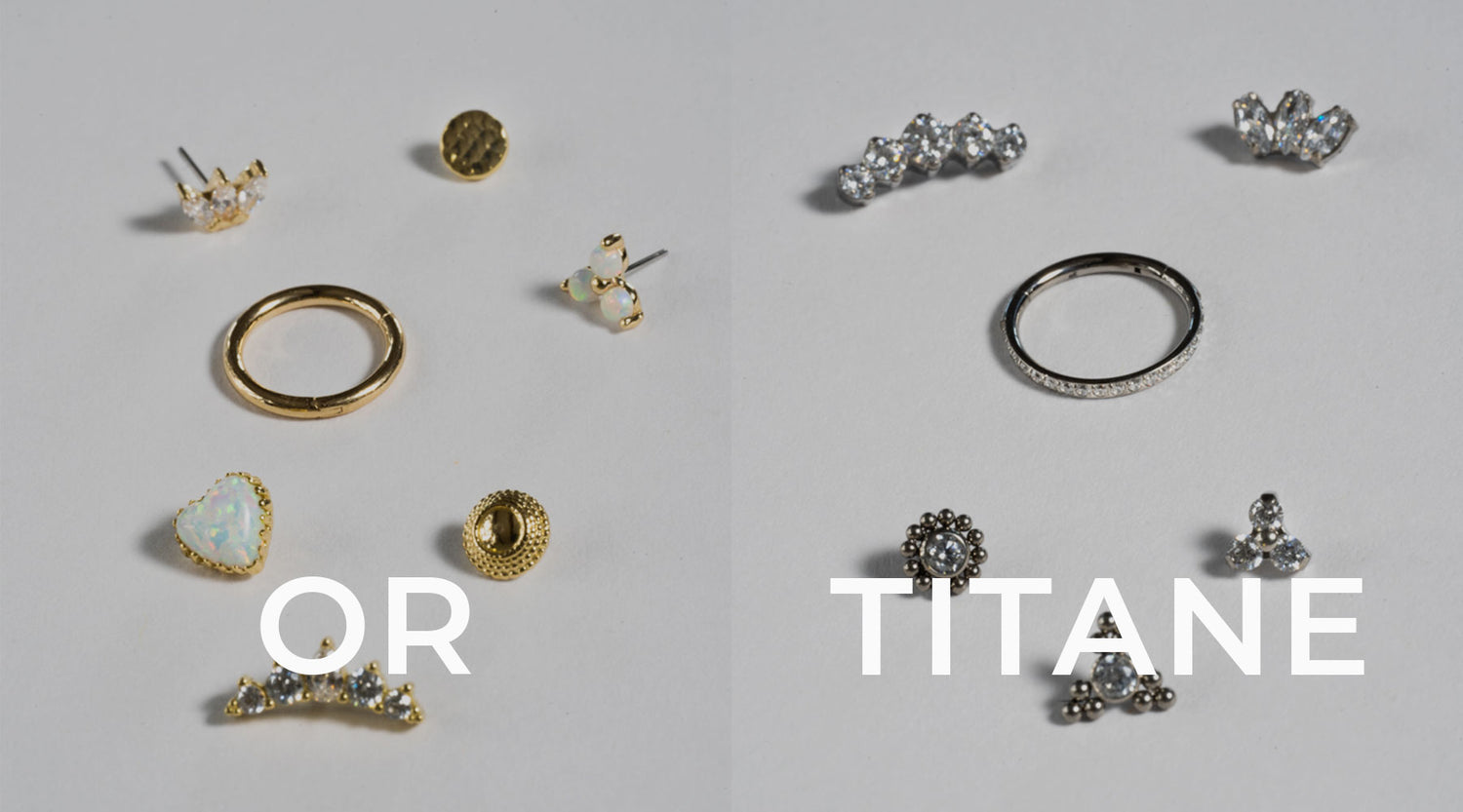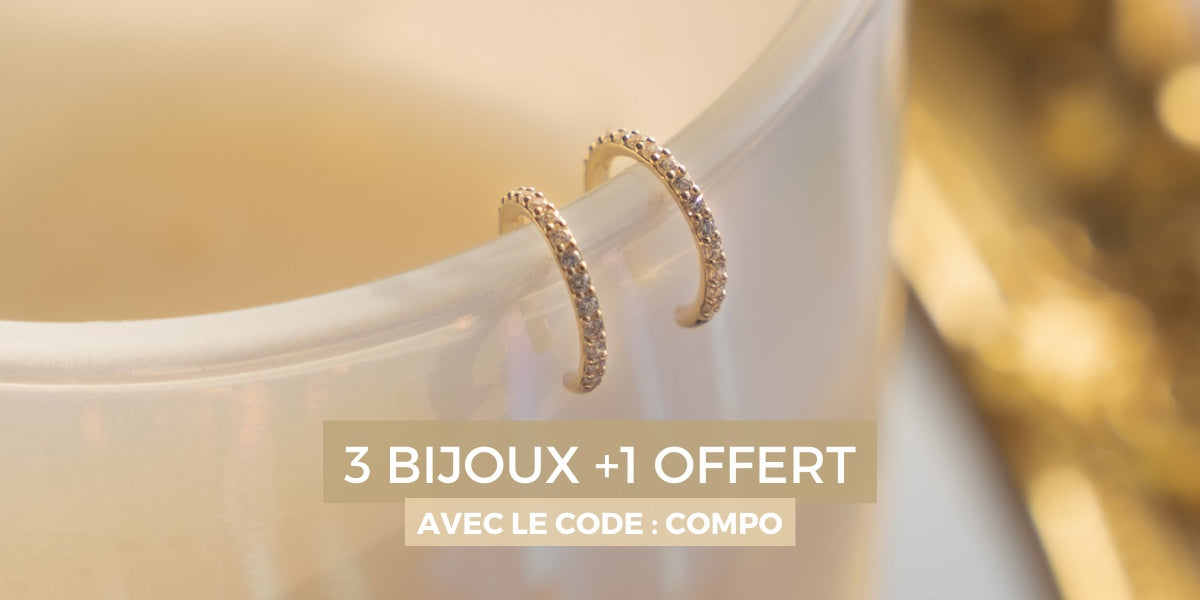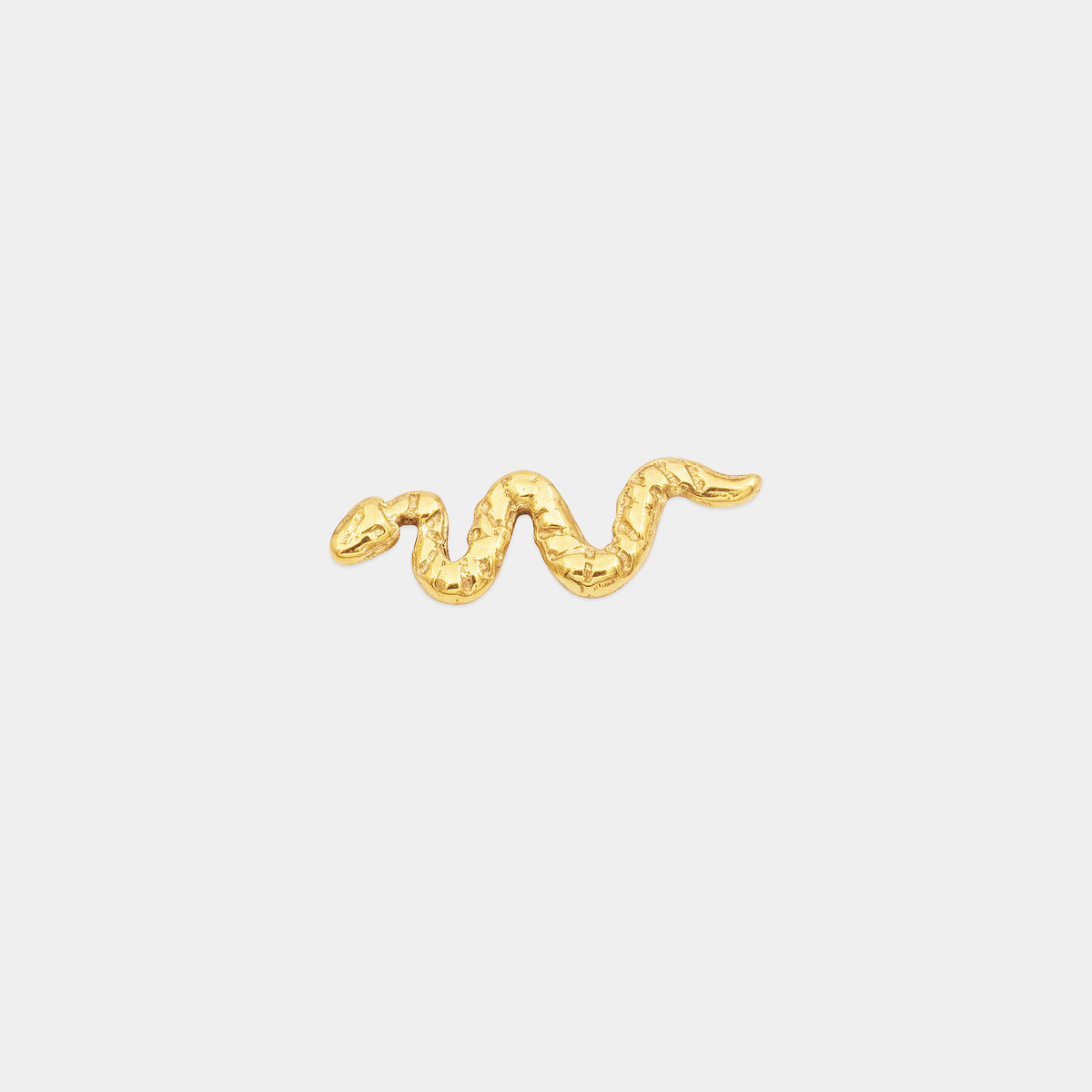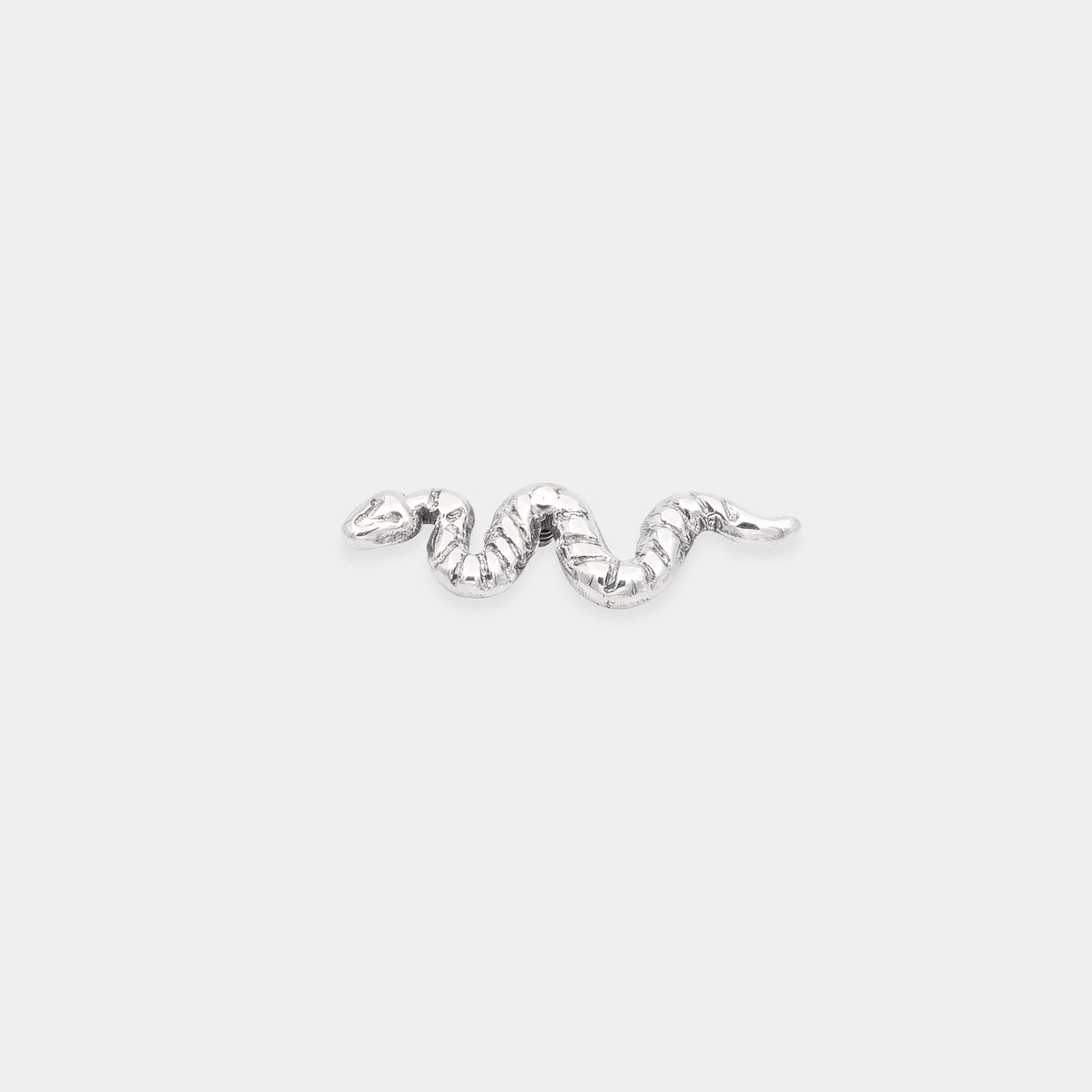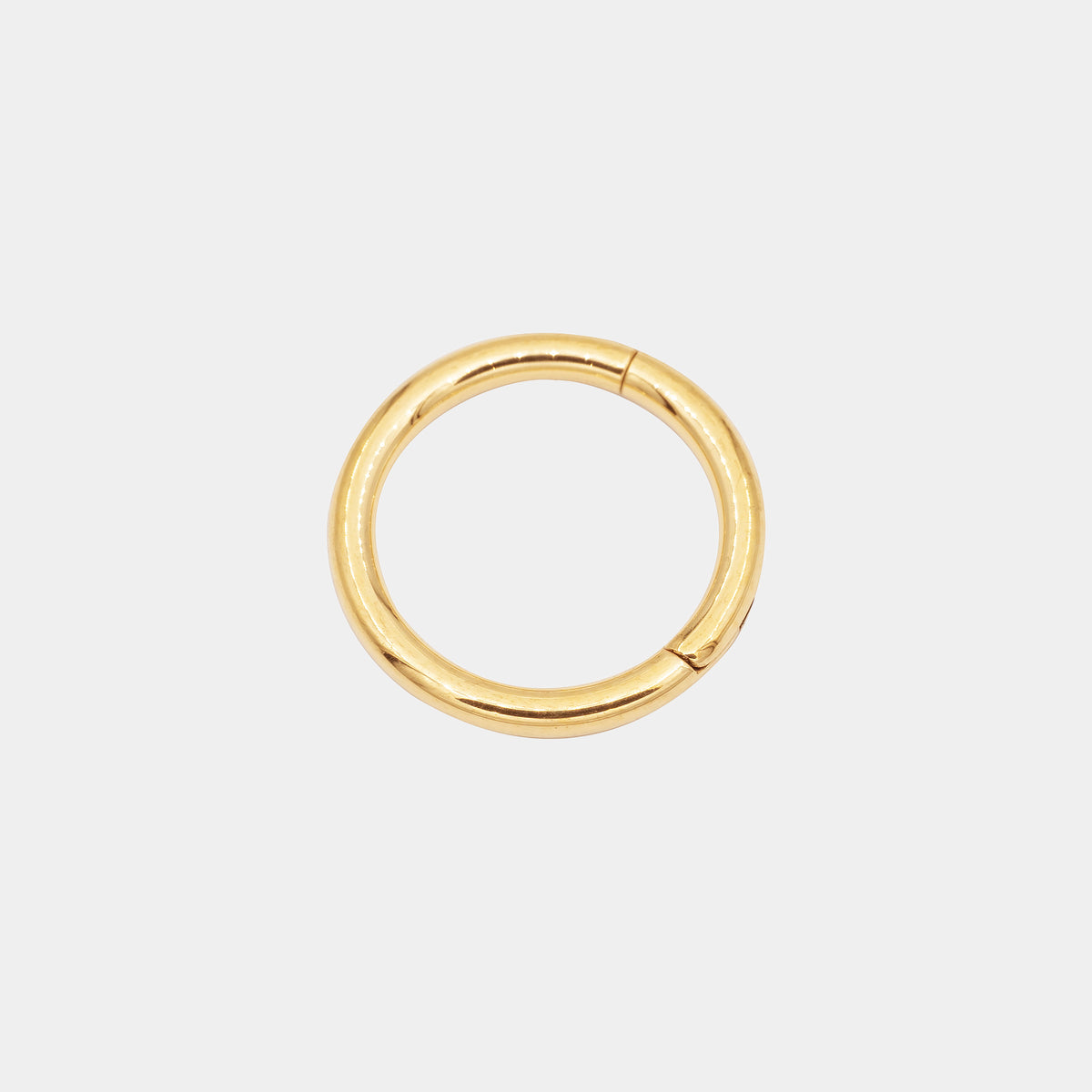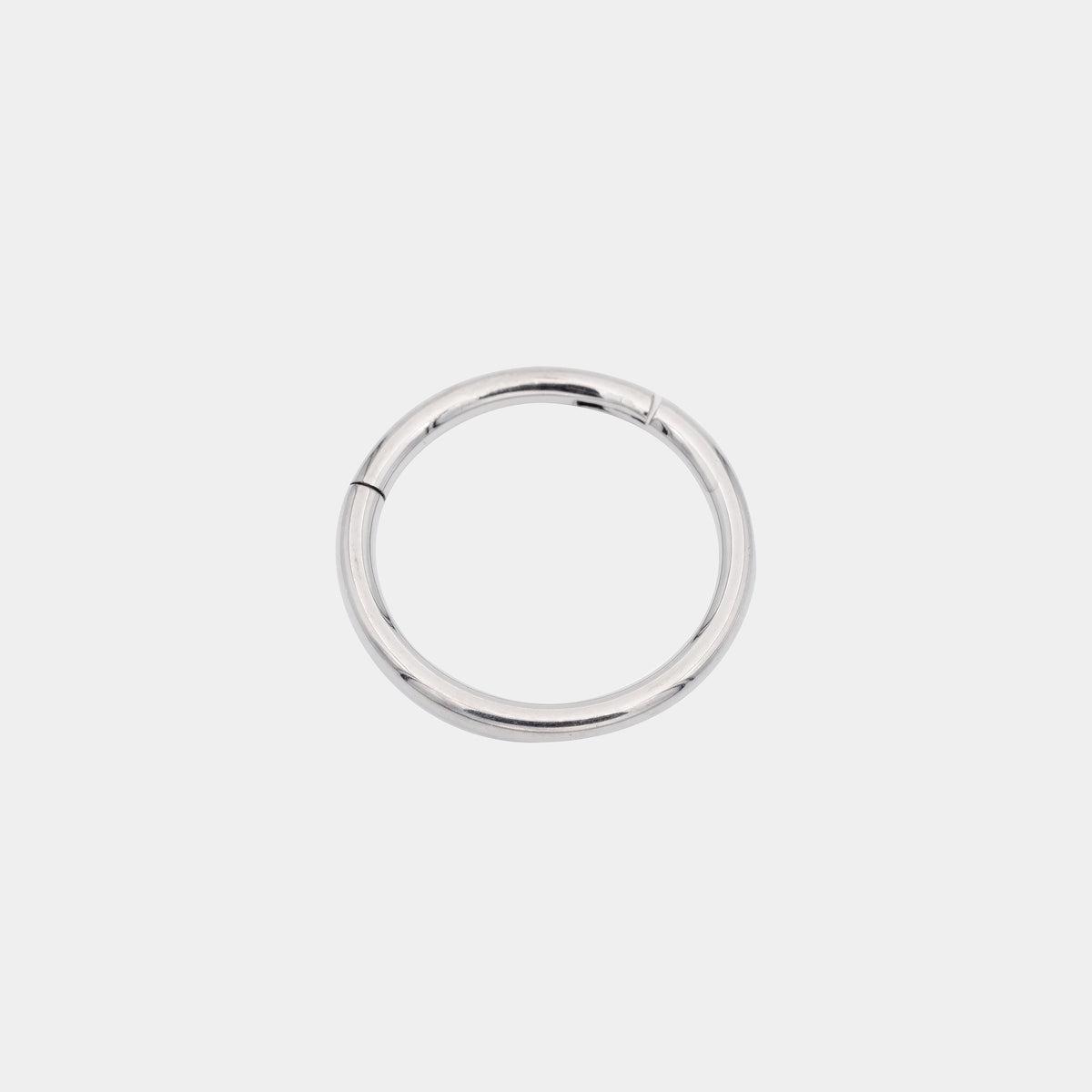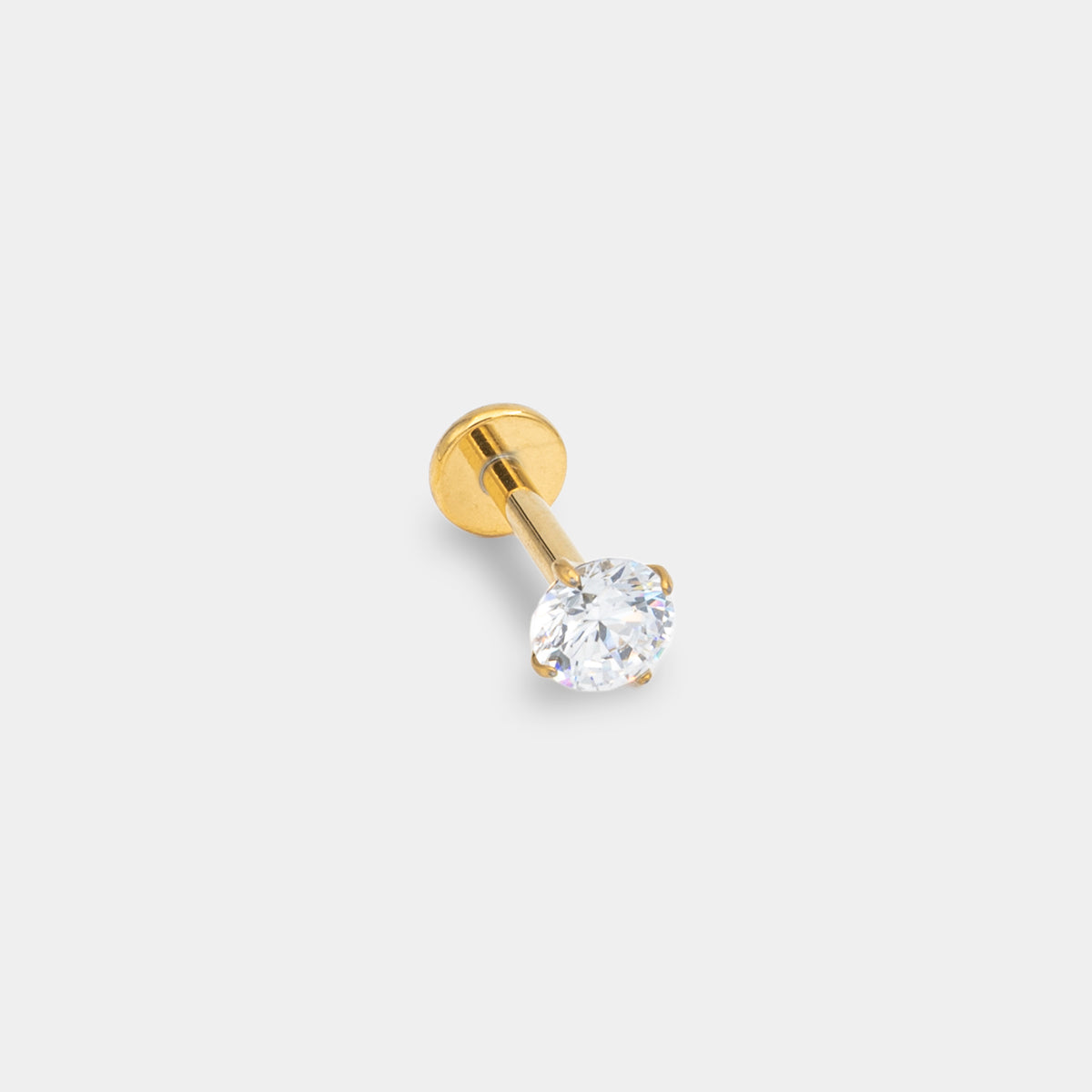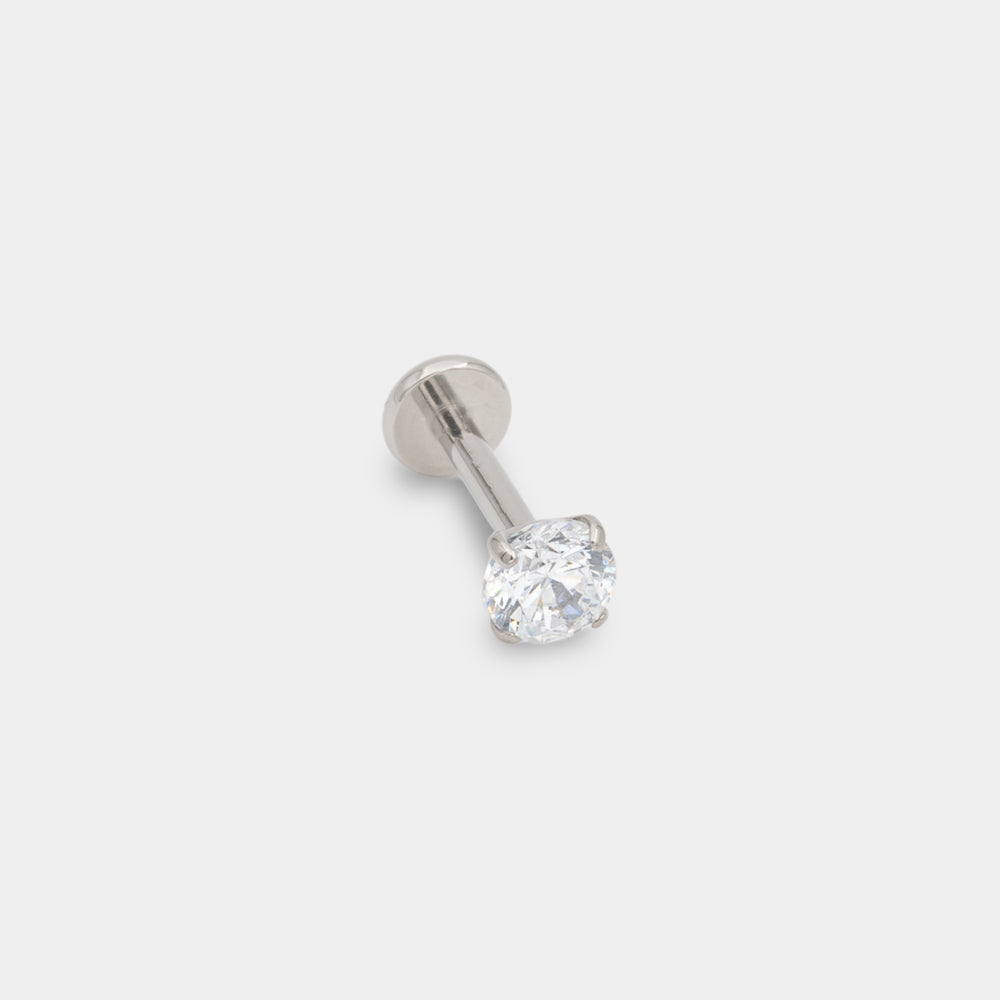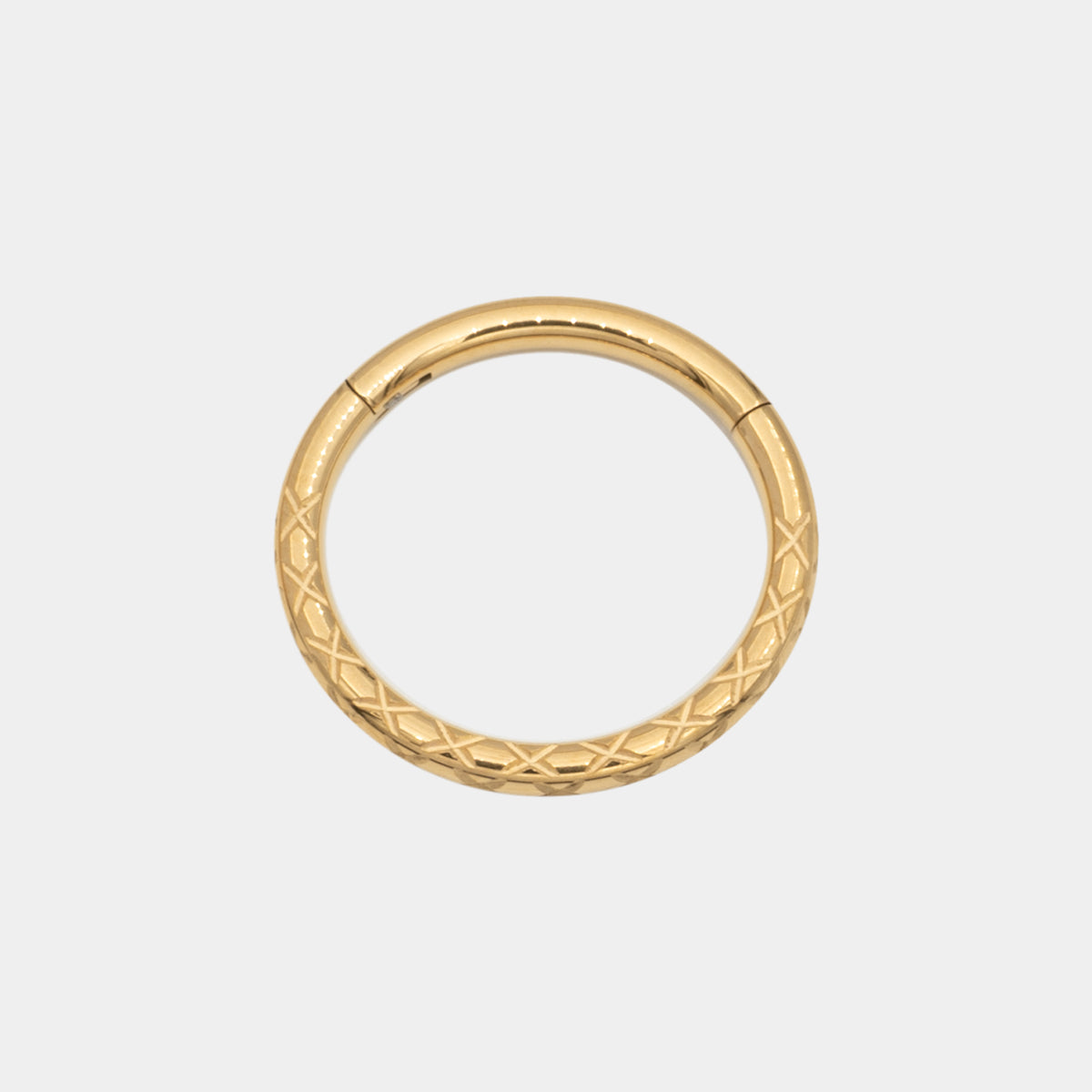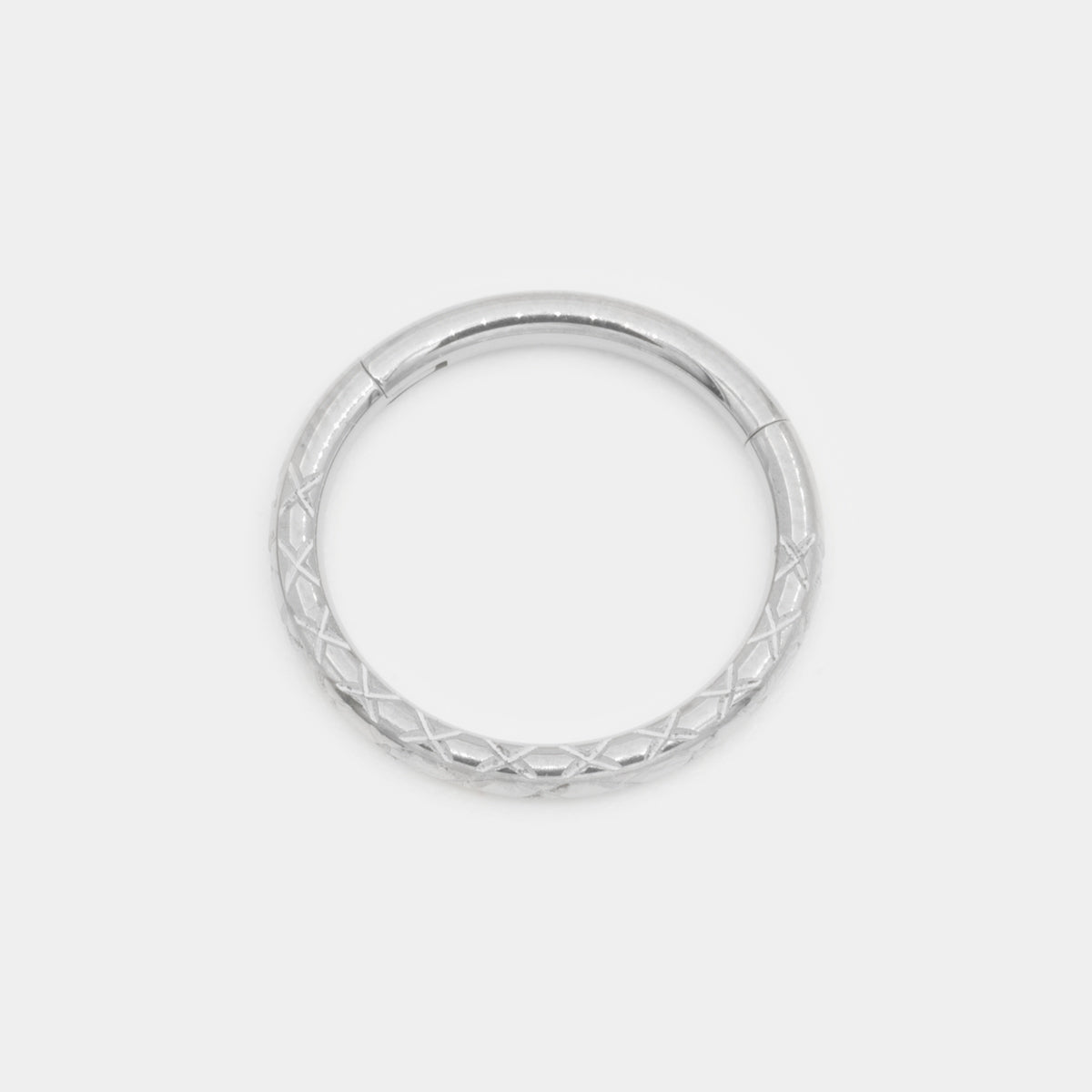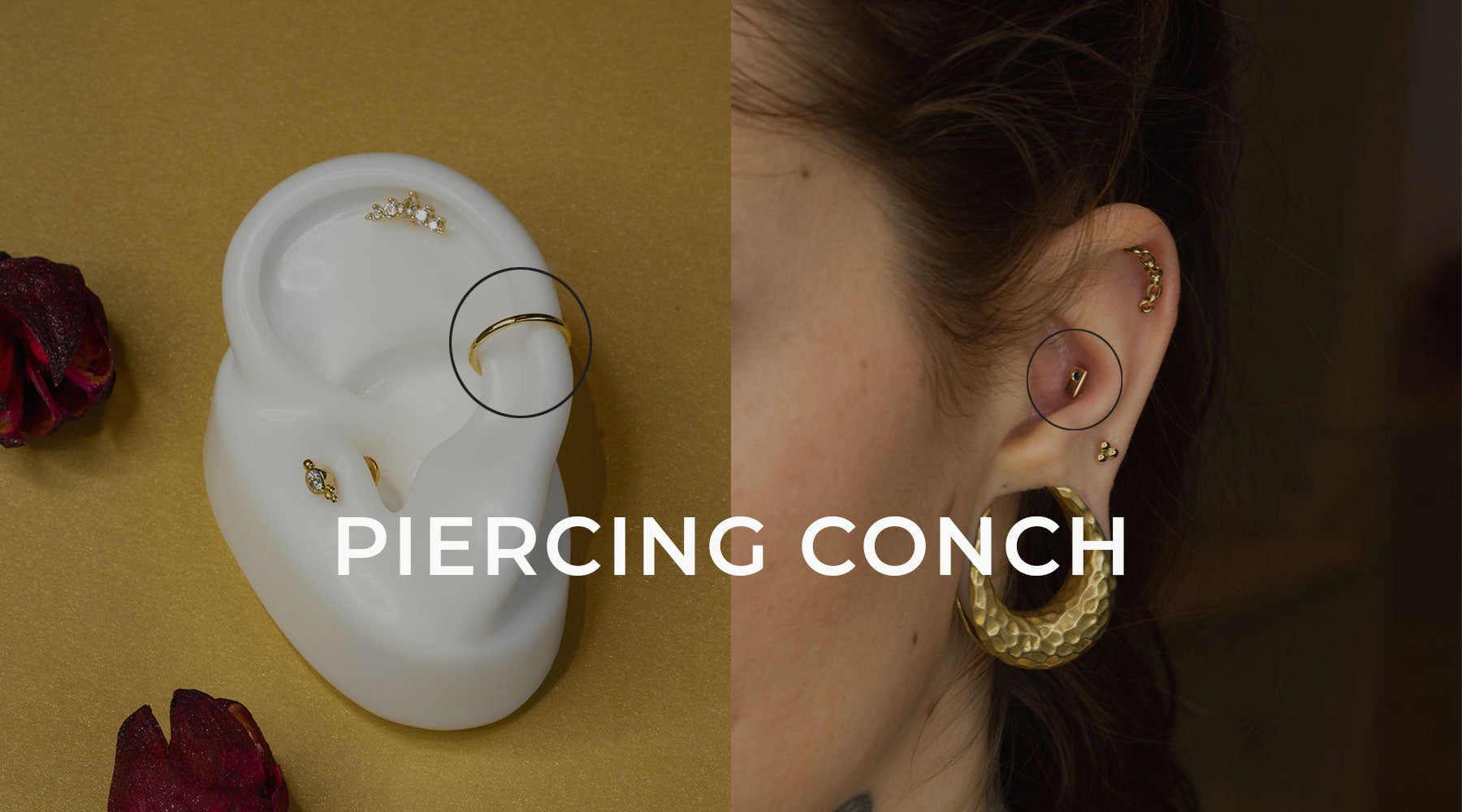At the house ofObsidian piercing, we love the piercings ofexcellent quality, but more than anything else, we love it when people carry them without encountering problems. Inflammation or infection is never pretty, which is why it is important to keep ahealthy piercing Thanks to good quality materials.
In the past, it was not uncommon to see piercings decorated with nanny pins, trombones and other materials other thanjewelry. When people start to stick everything and anything in their piercings, it is easy to suppose that the materials you put in your body are not important (spoiler: they have one).
Whether it's food or jewelry, you should always doBeware of what you put in your body. The use of appropriate materials is particularly important for the healing of piercings, it is always a good idea to be aware of the materials to which you expose your body.
The APP (Association of Piercing Professionals) lists 7 appropriate materials for healing piercings:
- Now (nickel -free)
- Titanium (Grade ASTM-F136)
- Niobium
- Surgical steel (ASTM-F138 grade)
- Biocompatible polymers
- Glass
Once the piercing is fully healed, new materials are available to you, all will not be good to choose. We do not recommend at Obsidian piercing for example silicone and acrylic which present more risks than benefits and are low qualities.
Here is a comparison of the main piercing materials:
Gold piercing:

We love gold from Obsidian Piercing, and for your body jewelry, this is probably the best material you can choose for your piercing.
Regarding metals, you generally have them for your money: the higher the grade of a metal, the more pure it will be, and the less you will have to worry about potential alloys and allergens. Gold is a solid and durable metal which is mostly well compatible with our body, as long as the jewel does not contain nickel (like all our gold articles), which is why it is preferable to go to at least 14 carats.
For healing piercings, you must always opt for gold from at least 14 carats, because it will have fewer alloys than lower quality gold. In addition, you must first choose between yellow or white gold, and you can go to pink gold once your piercing is completely healed. If you choose white gold, make sure it does not contain nickel; Some jewelers choose to mix their gold with nickel to obtain a silver look.
Advantages
- Gold is hypoallergenic (as long as it does not contain nickel).
- Sustainable material over time.
- It has an elegant look and can be worn during elegant events as well as for daily use.
- It’s nice to wear.
The inconvenients
- It’s more expensive than other metals.
- He must be maintained by a professional every few years.
- Gold scratches, so you have to store it properly.
Titanium piercing:

Titanium is one of the most used metals for healing piercings. Titanium is one of the highest quality materials you can put in your body, it is hypoallergenic and has a purity of metal that makes it perfect for almost everyone.
Please note, only the ASTM-F136 grade of titanium is considered to be implantable for your piercings, some low-end suppliers distribute different very low quality grades containing nickel.
One thing that is interesting about titanium is that it can be colored safely and biocompatible thanks to a system of anodization. Even if the color fades, it will not affect the jewelry wearer.
Advantages
- This is one of the purest metals you can find for your piercing.
- It is cheaper than other high quality metals, such as 14K gold or platinum.
- It’s perfect for healing piercings.
Disadvantages
- It is not considered as high quality as precious metals like gold and platinum.
- It’s more expensive than surgical steel.
Niobium piercing
Niobium is incredibly similar to titanium, but it is slightly heavier and more expensive. Like titanium, it can be anodized to produce different colors, and it does not react to body fluids, it is therefore biocompatible. In addition, it is naturally pure, which makes it hypoallergenic.
As it acts in the same way as titanium, it gains in popularity as a material for piercings, however, as it is more expensive than titanium, most perors recommend titanium rather than niobium.
Advantages
- He is free from harmful alloys.
- It is approved for healing piercings.
The inconvenients
- It’s almost the same as titanium, but it’s more expensive, so the cost is not often worth it.
"Surgical" steel piercing

Surgical steel is very popular for piercings under healing thanks to its medical standards, it is affordable and it adheres to App standards. However, not all surgical steels are equal, and you must make sure to use a safe shade for healing piercings; Only the ASTM-F138 grade including 316LVM steel (and not 316L) is considered to be implantable by the app, it still contains between 13 and 15% nickel, which can irritate the skin and cause allergies .
Surgical steel is a cheaper metal but therefore also less reliable than its colleague the titanium for example, it will therefore be necessary to be vigilant when you choose a piercing of this material, beware of certain resellers (sites or perceurs) not being Clearly transparent and informed about the rank of the steel they resell. Anatometal is one of the ASTM-F138 Surgical Steel suppliers.
Advantages
- Surgical steel is used by health professionals specifically for use in the body, and it is a common material in bone implants, so you know that it is generally safe for internal use.
- It’s cheaper than other quality metal options.
The inconvenients
- Not all surgical steels are identical. You should make sure that the surgical steel you use is safe for piercings (ASTM-F138).
- You must be careful when choosing the steel of your body jewelry, especially for healing piercings. It’s not always a foolproof metal.
Glass piercing
Glass is a material approved by the app for the healing of piercings. It is easy to sterilize, its smooth surface makes it ideal for healing, it also has a pleasant and fresh feeling to the touch.
However, the glass is delicate and could scatter, which could damage a piercing in the healing phase. Glass can also break in your piercing, so even if it is comfortable for healing, it may not be great if your piercing is in an area often in action.
Advantages
- It is approved for piercings under healing.
- You can get tons of different colors, styles and designs.
- The look is a little more unique than metal varieties.
The inconvenients
- It can break.
- This is heavy, which could deteriorate a piercing in healing.
Organic material piercing

Organic materials such as bone, horn, wood and stone make aesthetically unique pieces. These options are ideal for those who love a more “close to nature” look.
Organic materials are also more ecological than plastic or metal options, so they are perfect for those who want an environmentally friendly style.
However, many of these materials are porous - and can collect bacteria - some are even treated with chemicals that can be harmful for healing piercing, so you should wait for your piercing to be completely cured before choosing organic jewelry.
Advantages
- Organic materials are environmentally friendly.
- They offer a unique aesthetic.
- They are often hypoallergenic (although some can be treated with chemicals that can irritate your skin).
The inconvenients
- Porous materials cannot be easily sterilized, so they tend to host bacteria.
- They are not sure for healing piercings.
Silver piercing
Silver is a popular metal in all types of jewelry, but even if it is considered to be of better quality, it does not make excellent body jewelry.
Silver is one of the most unclean metals, most jewelry consisting of a mixture of various alloys, which most often contain large quantities of the famous metallic allergen, nickel.
For small caliber noses, money is generally acceptable, but other than that, you run a fairly significant risk of having an unpleasant reaction.
Advantages
- 925 silver is often cheaper than white gold.
The inconvenients
- The money is generally very impure, which can cause allergic reactions.
- It is easily tarnished, it will therefore be necessary to be careful.
Bioplastic piercing
Bioplast is a synthetic and flexible material that is available in a variety of models and colors, it is hypoallergenic and biocompatible. The term bioplast combines the words "biological" and "plastic", and almost describes its objective as a synthetic material that works well with the body.
Please note that it remains of low quality and does not go in the long term, it can come to change color, keep bad odors, catch bacteria via grooves following stripes.
This material can be sterilized in an autoclave and is suitable for recent piercings that require some time to heal. It is designed as a more pleasant plastic with the body than other plastics, such as acrylic.
Advantages
- It is approved by the app for the healing of piercings (although we will continue to recommend metal).
- Bioplastic is specially designed to be respectful of your body.
The inconvenients
- It is not intended to be worn over the long term.
- It has many traps linked to other plastic options, including blocking infiltration, which could make your piercing stinking.
- It scratches easily, creating grooves that catch bacteria, which could cause an infection.
Silicone piercing
Unlike acrylic, silicone is biocompatible, making it a slightly higher quality among plastic materials. However, plastics, in general, are not perfect for body piercings. If you have allergies to metals, try hypoallergenic metal types or another material instead.
Advantages
- It’s flexible and flexible.
The inconvenients
- It should only be worn temporarily.
- Its flexibility means that it could stretch your piercing, causing a tear.
- It tends to aspire to piercing, blocking natural oozing, which could cause an infection.
- It is not easy to maintain; You will have to make sure that the jewelry is clean and dry all the time
Acrylic piercing
If you are looking for colorful choices, acrylic is an inexpensive option, especially for those who are stretching their ears. Since you have to increase the size of your jewelry every few months as you stretch, inexpensive acrylic is a good choice until you reach your desired size and you can choose jewelry that you will keep longer .
Acrylic jewelry is available in all kinds of styles, but keep in mind that they are not created for long -term use.
Advantages
- It is cheap
The inconvenients
- It's fragile. This type of jewelry is easily striped and cracked, so be sure to treat it gently. Otherwise, you risk creating small corners in your piercing so that bacteria develop, which increases your risk of infection.
- It cannot be self -saved. This type of jewelry is very sensitive to extreme temperatures, which means that any form of thermal sterilization is excluded. You can rub it with small amounts of alcohol or peroxide, but keep in mind that these materials are also corrosive and that plastic is likely to decompose accordingly.
- It cannot be used in healing piercings (because it cannot be self -saved).
When it comes to choosing the perfect piercing, you should make sure you treat your body with good quality materials instead of simply choosing the cute most look.
At the house ofObsidian piercing, we do not think you should choose between treating your body well and creating a collection of grandiose jewelry. This is why we only offer 14 and 18-carat gold bodies, as well as ASTM-F136 titanium, the best piercing materials you can get.

